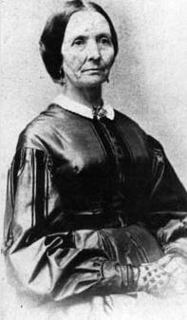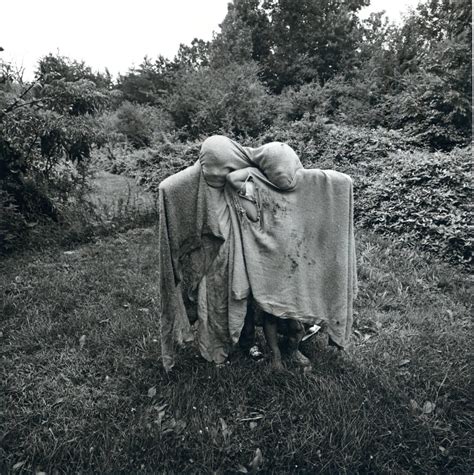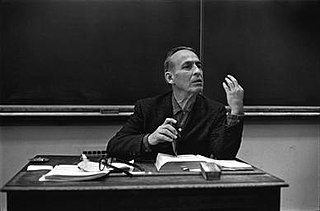A Quote by Albert Camus
...we rarely confide in those who are better than we. Rather, we are more inclined to flee their society. Most often, on the other hand, we confess to those who are like us and who share our weaknesses. Hence we don't want to improve ourselves and be bettered, for we should first have to be judged in default. We merely wish to be pitied and encouraged in the course we have chosen. In short, we should like, at the same time, to cease being guilty and yet not to make the effort of cleansing ourselves.
Related Quotes
When we honestly ask ourselves which person in our lives mean the most to us, we often find that it is those who, instead of giving advice, solutions, or cures, have chosen rather to share our pain and touch our wounds with a warm and tender hand. The friend who can be silent with us in a moment of despair or confusion, who can stay with us in an hour of grief and bereavement, who can tolerate not knowing, not curing, not healing and face with us the reality of our powerlessness, that is a friend who cares.
If the book we are reading does not wake us, as with a fist hammering on our skull, why then do we read? So that it shall make us happy? Good God, we should also be happy if we had no books, and such books as make us happy we could, if need be, write ourselves. But what we must have are those books which come upon us like ill fortune, and distress us deeply, like the death of one we love better than ourselves; like suicide. A book must be an ice-axe to break the sea frozen inside us.
We are not saints yet, but we, too, should beware. Uprightness and virtue do have their rewards, in self-respect and in respect from others, and it is easy to find ourselves aiming for the result rather than the cause. Let us aim for joy, rather than respectability. Let us make fools of ourselves from time to time, and thus see ourselves, for a moment, as the all-wise God sees us.
Women should be women and not babies that need petting and correction all the time. I know we like to be appreciated but if we do not get all the appreciation which we think is our due, what matters? We know the Lord has laid high responsibility upon us, and there is not a wish or desire that the Lord has implanted in our hearts in righteousness but will be realized, and the greatest good we can do to ourselves and each other is to refine and cultivate ourselves in everything that is good and ennobling to qualify us for those responsibilities.
Of course, this is one of the really important things about art, that you can make more than you can understand at the moment the thing is being made. But the gap between what we recognize inside ourselves - our feelings- and our ability to trust ourselves and to trust exposing ourselves to those ideas, can be great.
Each one of us here today will at one time in our lives look upon a loved one who is in need and ask the same question: We are willing to help, Lord, but what, if anything, is needed? For it is true we can seldom help those closest to us. Either we don't know what part of ourselves to give or, more often than not, the part we have to give is not wanted. And so it is those we live with and should know who elude us. But we can still love them - we can love completely without complete understanding.
Most of us are flawed, complicated people, and we're all trying very hard to disguise that or hide it from the public. Ultimately, we respond to someone who's capable of doing heroic things but has issues or problems in their life that they can't seem to resolve. I believe audiences identify with that. All of us have those secrets and those things that we wish we could improve about ourselves. And when you have someone who's heroic and flawed, I think it makes us feel better about ourselves.
In patriarchal culture men are especially inclined to see love as something they should receive without expending effort. More often than not they do not want to do the work that love demands. When the practice of love invites us to enter a place of potential bliss that is at the same time a place of critical awakening and pain, many of us turn our backs on love.
In modern society most of us don't want to be in touch with ourselves; we want to be in touch with other things like religion, sports, politics, a book - we want to forget ourselves. Anytime we have leisure, we want to invite something else to enter us, opening ourselves to the television and telling the television to come and colonize us.
In a discussion of this kind our interest should be centered not on the weight of the authority but on the weight of the argument. Indeed the authority of those who set out to teach is often an impediment to those who wish to learn. They cease to use their own judgment and regard as gospel whatever is put forward by their chosen teacher.
Who can keep us from recreating our life as we would like it to be-as it could, and should be? No one but ourselves can keep us from being artists, rather than marching forward like mere consumers, corporate robots, sheep. No one but ourselves can keep us from dancing with life instead of goose-stepping. In every moment recognizing our own creative imagination, the living picture we paint on the canvas of our lives. Everything is imagination. And imagination is freedom, but it can also be conditioning, bondage.
We have limited time in our life, therefore we should try to teach ourselves, not to teach others. We should conquer ourselves, rather than conquer others. Whether coming or going, standing, sitting or lying down, our mind should be focused in this way. If we practise like this and develop mindfulness continuously, wisdom arises quickly and this is a fast way of practice.







































